Deputy Head of the Office of the President Pham Thanh Ha chaired the press conference.
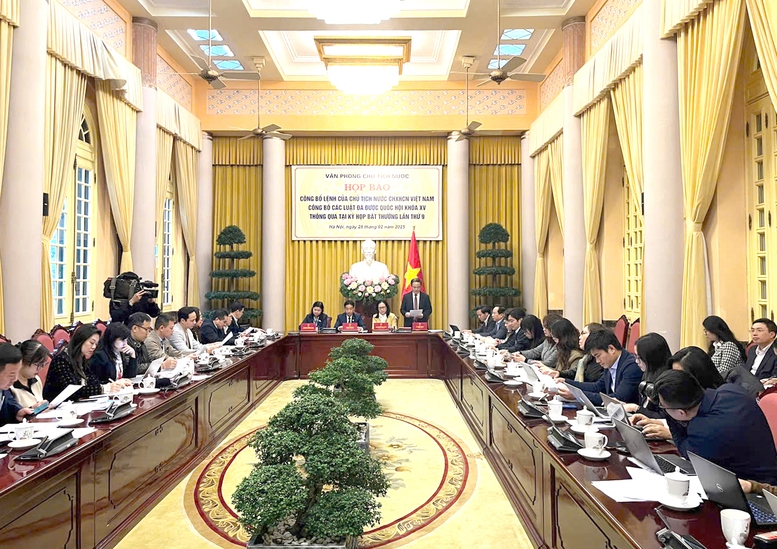 Press conference to announce the President's Order promulgating three laws recently passed by the 15th National Assembly at its 9th extraordinary session. Photo: VGP/Nguyen Hoang
Press conference to announce the President's Order promulgating three laws recently passed by the 15th National Assembly at its 9th extraordinary session. Photo: VGP/Nguyen Hoang
Innovation in thinking in law making
The Law amending and supplementing a number of articles of the Law on Organization of the National Assembly takes effect immediately after being passed by the National Assembly (February 17, 2025). This Law amends and supplements 21 articles and abolishes 17 articles of the Law on Organization of the National Assembly.
Notably, the amended and supplemented Law stipulates the division of authority of the National Assembly, the Government and other agencies in the state apparatus, in order to specify the content of innovation in thinking in law-making work, clearly define the scope of content that needs to be regulated by law and resolution of the National Assembly and provide principles and orientations on the level of detail that needs to be regulated in the law, as a basis for implementing the authority of the National Assembly to make laws and amend laws.
The Law amends and supplements regulations on the Secretary General of the National Assembly, the Office of the National Assembly, and agencies under the Standing Committee of the National Assembly, such as: determining that the Secretary General of the National Assembly is also the Head of the Office of the National Assembly; does not regulate the Deputy Secretary General, the Secretariat, and agencies of the Standing Committee of the National Assembly.
The Law also amends and supplements a number of provisions related to the activities of the National Assembly, the National Assembly Standing Committee, the National Assembly agencies and National Assembly deputies such as: the National Assembly taking a vote of confidence, voting for confidence in people holding positions elected or approved by the National Assembly; the participation of National Assembly deputies as members and participating in the activities of the Nationality Council and Committees of the National Assembly; cases of temporary suspension of the performance of duties, powers of National Assembly deputies and the authority of the National Assembly Standing Committee in drafting laws, ordinances, resolutions, and operating budget of the National Assembly; National Assembly sessions.
Improve the effectiveness and efficiency of state management
The Law on Government Organization consists of 5 chapters and 32 articles, taking effect from March 1, 2025.
The Law has resolved the relationship between the Government and agencies in the state apparatus system, between agencies exercising executive power and agencies exercising legislative power, and agencies exercising judicial power.
The Law has clarified the duties, powers and authority of the Prime Minister as the head of the Government, leading and taking responsibility for the operations of the state administrative system from the central to local levels; highlighting the Prime Minister's duties in leading, directing and operating the operations of the state administrative system from the central to local levels.
The provisions of the Law have clarified the authority of Ministers and Heads of ministerial-level agencies as heads of ministries and as members of the Government. They emphasize the responsibility of Ministers and Heads of ministerial-level agencies as members of the Government, responsible to the Government for state management of sectors and fields as assigned by the Government. In this capacity, Ministers and Heads of ministerial-level agencies are personally responsible to the Prime Minister, the Government and the National Assembly for sectors and fields assigned to them; and explain and answer questions from National Assembly deputies.
The Law clarifies the relationship between the Government, the Prime Minister, Ministers, Heads of ministerial-level agencies and local authorities through the principles of decentralization, decentralization, delegation, ensuring adherence to the motto: "locality decides, locality acts, locality takes responsibility", creating a mechanism to promptly resolve institutional difficulties and problems, unlocking resources, contributing to improving the effectiveness and efficiency of state management from the central to local levels.
Expanding the scope of the authorizing and authorized subjects
The Law on Organization of Local Government 2025 consists of 7 chapters and 50 articles, taking effect from March 1, 2025.
Notably, the Law stipulates 1 chapter on the division of authority, decentralization, delegation of authority and authorization between local authorities at all levels.
The Law stipulates 7 principles for the division of authority, including new contents such as: Clearly defining the content and scope of tasks and powers that local authorities are allowed to decide, organize implementation and take responsibility for the results; ensuring no duplication or overlap of tasks and powers between agencies and between local authorities at all levels; consistent with the capacity and conditions for performing tasks of local authorities at all levels. Agencies, organizations and individuals assigned to perform tasks and powers of superior state agencies are guaranteed the necessary conditions to perform tasks and powers. In addition, the Law stipulates the contents of ensuring power control; responsibilities for supervision and inspection of superior state agencies; meeting local governance requirements; application of science and technology, innovation and digital transformation...
To encourage the proactive and creative spirit of localities, the Law supplements the provision: "Local authorities shall proactively propose to competent authorities on decentralization and delegation of authority to competent agencies, organizations and individuals in the locality to perform tasks and powers in accordance with the capacity and practical conditions of the locality."
Regarding decentralization, the Law clearly stipulates that the decentralization of power to local authorities at all levels must be stipulated in laws and resolutions of the National Assembly. Local authorities are autonomous in making decisions, organizing implementation and taking responsibility within the scope of their delegated tasks and powers. State agencies at higher levels, within the scope of their tasks and powers, are responsible for examining, inspecting and supervising the constitutionality and legality in the performance of delegated tasks and powers by local authorities at all levels.
Regarding decentralization, the Law clearly stipulates the decentralizing subject and the decentralizing recipient, and the responsibility of the decentralizing agency in ensuring the conditions for implementing decentralization. The decentralizing agency is responsible before the law and the decentralizing agency for the results of implementing the decentralized tasks and powers; it is not allowed to further decentralize the tasks and powers it has received; and stipulates the adjustment of administrative procedures in case of decentralization.
Regarding authorization, compared with the 2015 Law, the Law clarifies and expands the scope of the authorizing subject and the authorized subject; clearly stipulates the requirements of authorization, the responsibilities of agencies in authorizing and performing authorized tasks, the use of seals and forms of documents when performing authorized tasks, and the adjustment of administrative procedures in cases of authorization...
Diep Truong (Vietnam News Agency)






![[Photo] Prime Minister Pham Minh Chinh attends the annual Vietnam Business Forum](https://vphoto.vietnam.vn/thumb/1200x675/vietnam/resource/IMAGE/2025/11/10/1762780307172_dsc-1710-jpg.webp)

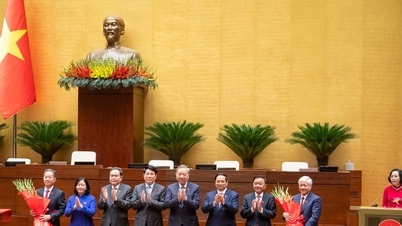







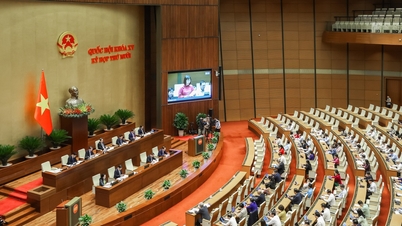














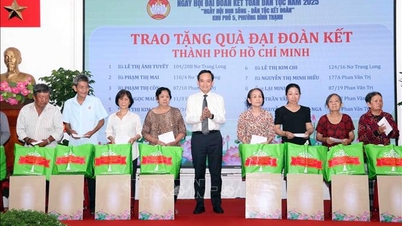













































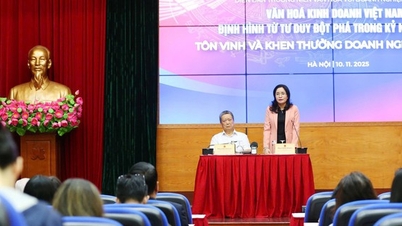

















![Dong Nai OCOP transition: [Article 3] Linking tourism with OCOP product consumption](https://vphoto.vietnam.vn/thumb/402x226/vietnam/resource/IMAGE/2025/11/10/1762739199309_1324-2740-7_n-162543_981.jpeg)











Comment (0)